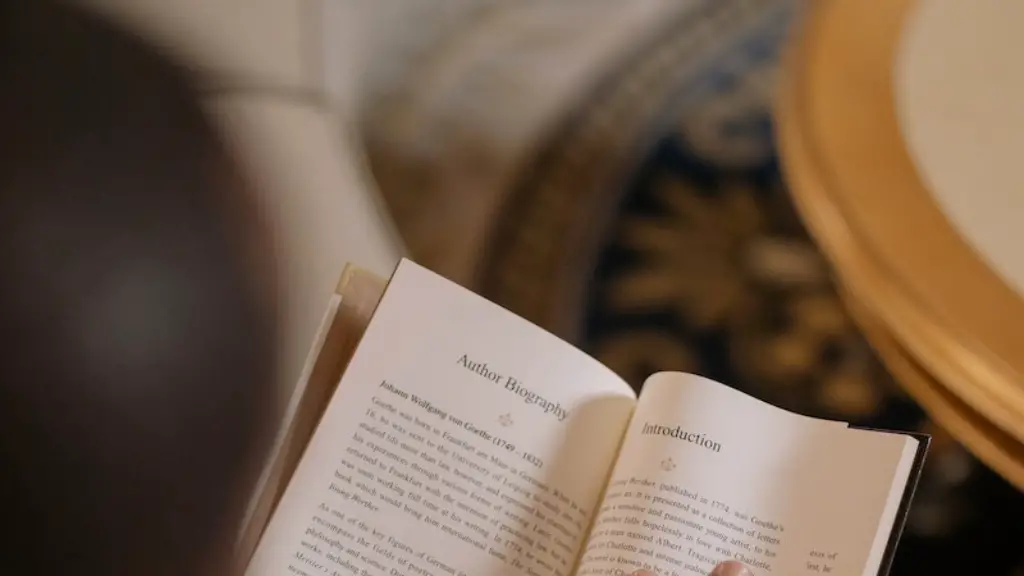Emily Dickinson is often referred to as a reclusive poet, known for her unconventional use of capitalization, punctuation, and slant rhyme. Her metaphors and similes are often surprising, yet strangely apt. Dickinson also had a gift for creating poems that capture a moment in time, whether it be a feeling, an event, or a change in the seasons. What makes her work unique is her ability to evoke an emotion or a memory in just a few words.
There are many reasons why Emily Dickinson is unique. For one, she was a prolific writer who produced a large body of work despite living a relatively reclusive life. Secondly, her poetry often straddled the line between the traditional and the avant-garde, incorporating both formal and unconventional elements. Lastly, her poems often deal with dark or taboo subjects, such as death and suffering, in a strikingly frank and honest way. These are just some of the reasons why Emily Dickinson is considered one of the most innovative and important poets of the 19th century.
What makes Emily Dickinson so special?
Emily Dickinson’s writing style is most certainly unique. She used extensive dashes, dots, and unconventional capitalization, in addition to vivid imagery and idiosyncratic vocabulary. Instead of using pentameter, she was more inclined to use trimester, tetrameter, and even dimeter at times. This made her poems stand out from those of her contemporaries, and helped her to become one of the most renowned poets in American history.
Dickinson’s use of dashes and capitalization is unconventional, but it adds to the effect of her poems. The dashes add a sense of urgency and the capitalization emphasizes the importance of certain words.
What is Emily Dickinson poetry style
Emily Dickinson is one of America’s most renowned poets. She is known for her use of slant-rhyme, conceits, and unconventional punctuation. She was also known for her reclusive habits.
1. Emily Dickinson wrote nearly 1,800 poems in her lifetime.
2. Yet, only a dozen or so were published in her lifetime.
3. People thought that she only wore white.
4. Her poems were canonized by her brother’s mistress.
5. She didn’t die from kidney disease.
What did Emily Dickinson do to change the world?
Emily Dickinson was a highly influential poet who introduced a new style of writing and poetry. Her unique and innovative poems were unlike anything else that was being written at the time, and her ability to express her feelings in such a different and powerful way changed the way people think about things and how they feel about them. She is truly a one-of-a-kind writer who has left a lasting mark on the world of poetry.
Emily Dickinson is one of the most important American poets of the 19th century. Her poetry is characterized by its unconventional themes, varied moods, shortness and conciseness, lack of titles, and individualism. Dickinson’s poems often deal with death, love, nature, and other spiritual topics. Her work is highly original and often transcendental in its outlook. Dickinson is also known for her unbiased opinions and realistic approach to life.
How did Emily Dickinson make a difference?
Dickinson’s poems have had a remarkable influence in American literature. Using original wordplay, unexpected rhymes, and abrupt line breaks, she bends literary conventions, demonstrating a deep and respectful understanding of formal poetic structure even as she seems to defy its restrictions. Her work is characterized by economy of language, intense focus, and innovative use of form, and her poems often deal with themes of death and immortality. Dickinson’s poems were largely unknown until after her death, when they were published and praised for their freshness and originality.
Dickinson is often considered a different voice in the literary world because of her unique perspective on common themes. While love, death, sentiment, war, and religion were all popular topics during her era, Dickinson often approached them from a different perspective. This can be seen in her poems, which often explore the darker side of these topics. For example, her poem “I Heard a Fly Buzz-When I Died” is a different take on death than what was typically seen during her time. Dickinson’s focus on the more difficult aspects of life has led many scholars to consider her a different voice in the literary world.
What are some words that describe Emily Dickinson’s poetry
Emily Dickinson is known for her unconventional and individualistic poetry. Her themes often transcend the physical world and explore spiritual or psychological states. Her poems are often highly symbolic, communicating her ideas and feelings through symbolic images and objects.
Dickinson’s use of imagery, enjambment, and dashes in her poetry creates an overall feeling of ambiguity. By using these devices, she highlights the uncertain nature of her subjects, leaving readers to interpret the meaning for themselves. This ambiguity can be frustrating for readers, but it also allows for a more personal connection to the poem. Ultimately, it is up to the reader to decide what the poem means to them.
What influenced Emily Dickinson poetry?
Dickinson’s poetry was greatly influenced by her reading of the Metaphysical poets of seventeenth-century England, as well as the Book of Revelation and her upbringing in a Puritan New England town. These influences encouraged a Calvinist, orthodox, and conservative approach to Christianity in her poetry.
If you’re an INFP like Emily, you probably enjoy being alone or in small groups more than being in large gatherings. You may also be more reserved and idealistic than others, and more adaptable too. When it comes to discussions, you probably prefer to listen more than talk.
What is Emily Dickinson’s most famous quote
Hope is the thing with feathers that perches in the soul and sings the tunes without the words and never stops at all. This is something that I really hold onto when things are tough. Hope is what gets me through the tough times.
Emily Dickinson’s poetic achievement has been deemed by many as America’s best-known female poet and a legend in American Literature. Her poetry style was revolutionary as she shunned the use of traditional meter form. Instead she adapted her poems to the meter used in English Hymns and experimented with new forms of rhyme. This made her poetry unique and difficult to categorize, but ultimately garnered her much acclaim. Her works continue to be popular among readers today and her legacy as a trailblazing poet remains.
What is Emily Dickinson’s legacy?
Dickinson’s poetic legacy is an incredible accomplishment, considering she left behind nearly 1800 poems. It’s unclear what she wanted to happen to them after her death, but those close to her made sure that her work was preserved. Her talent was finally recognized and she became an internationally-famous poet, but it came at the cost of emotional intensity and personal sacrifice.
1. Be open to linguistic surprise when reading Dickinson’s poetry. Her use of language can be unexpected and challenging, but also rewarding.
2. Review the major characteristics of her poetry. What kind of style does she typically write in? What are her major themes?
3. Set aside the expectation that a poem has to “mean” one thing. Dickinson’s poems often have multiple meanings, and it’s okay to explore different interpretations.
4. Try “filling in the blanks” when reading her poems. Because of the brevity of many of her poems, there may be parts that are left unsaid. Use your imagination to fill in the gaps.
5. Sometimes Dickinson’s syntax is problematic—the poems are so compressed! Don’t be afraid to re-read a poem several times to try and make sense of it.
Conclusion
Emily Dickinson is unique because of her highly individualized and distinctive style of poetry. Her poems are characterized by their use of unconventional grammar and syntax, as well as by her frequent use of slant rhyme. In addition, Dickinson was known for her reclusive lifestyle and her tendency to write about taboo subjects, such as death and love.
Emily Dickinson is unique because of her prolific writing, her focus on death and immortality, and her reclusive lifestyle. While some may see her as morbid or depressing, her fans appreciate her for her originality and her insights into the human condition.





